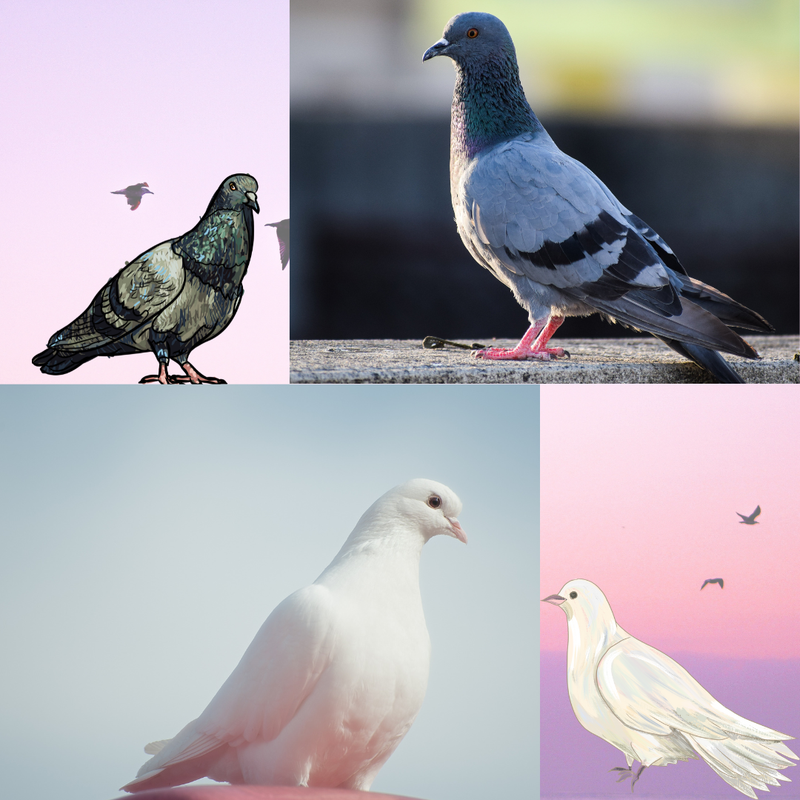Pigeons and Doves

Pigeons and doves belong to the order of birds known as Columbiformes and are comprised of about 300 different species. These gentle birds can be found all over the world except the Arctic and Antarctic. Humans have utilized the rock pigeon for racing, message delivery and as a food source. The most common species that are found in the pet trade include the ring-necked dove and the diamond dove.
Depending on the purpose for which they are being used, these birds can be housed indoors or out. Either way, a roosting site should be provided. If numerous birds are being kept outdoors in a loft, it is important to keep a close eye on temperature, humidity and air quality. In hot months, the temperature should not be allowed to get over 82 F. In cold months, the temperature should not dip below 55 F. Humidity should not exceed 70%. Overcrowding can lead to disease, competition for resources, fighting and stress. The maximum number of birds that should be able to occupy one cubic meter of space is two young pigeons, two adult females, and one adult male.
Many pigeons and doves do well on a good wild bird seed mix. Supplementation with fresh chopped greens, soft (cooked) orange to yellow vegetables (e.g., squash, sweet potato, etc.), and pellets designed for parrots can be used. Harrison’s bird food makes small size pellets or mash that can be mixed with the seeds to help enhance the nutritional value of the diet. Additional food treats can include hard-boiled egg (shell and all!), cooked beans, and sprouted beans. For laying birds it is important to make sure they are getting enough calcium. Providing parrot pellets, layer chicken feed or powdered calcium mixed in the diet can help to meet this need.
A bowl of water should be available at all times. You may put in a larger dish of water (something like a ceramic pie pan) once a week for bathing. Some doves love being misted with a spray of water several times a week instead of a full bath.
Preventative medicine and regular examination of pigeons and doves is a must in order to keep these birds healthy and in top shape. Birds that are used for racing purposes should be vaccinated against avian paramyxovirus and pox. Depending on the individual flocks needs, salmonella vaccines can be given as well. Young birds, breeding birds, and sick birds should be tested for a disease known as trichomoniasis. This is a common parasite in pigeons and other columbiformes that can lead to severe crop infections. Birds with exposure to wild birds should be monitored for lice and internal parasites.

